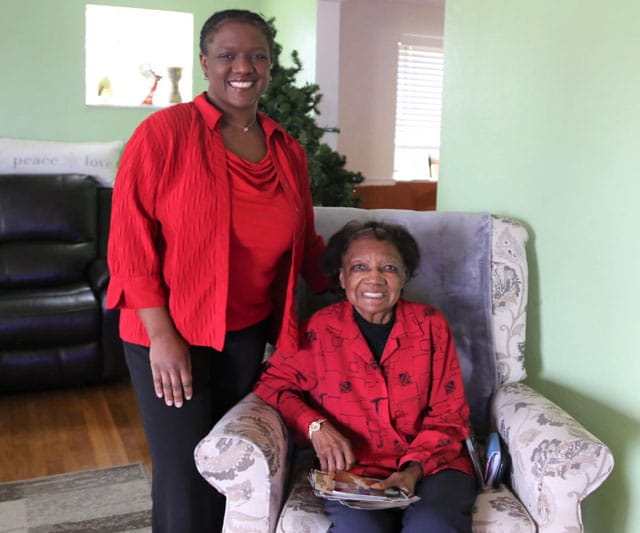We’ve all heard someone say it: they’ve decided to keep working beyond retirement age to “keep their mind sharp.” Now, that widely held notion has some science behind it.
Three researchers at the Max Planck Institute for Demographic Research in Germany have released a study showing measurable differences in cognitive decline between those who bow out of the workforce earlier versus later in life. Some of the differences were stark.
“Oh, it’s absolutely substantial,” says Jo Mhairi Hale, a sociologist at the University of St. Andrews in Scotland and the lead author on the study.
Hale’s team drew its data from the massive Health and Retirement Study, an extensive ongoing trove of information of 20,000 Americans maintained by the University of Michigan.
What the Study Found About Cognitive Decline
The authors didn’t try to pinpoint an optimal retirement age — that would depend heavily on individual circumstances — but their results do suggest that generally speaking, sticking it out until age 67 (vs. retiring between age 55 and 66) can ward off the type of cognitive decline suffered by people with Alzheimer’s disease.
“The three of us who wrote the paper are not suggesting that it’s paid work per se that is protective against cognitive decline. We think it’s cognitive engagement.”
— Jo Mhairi Hale
Subjects in the study averaged a one-third reduction in typical cognitive declines observed in people aged 61 to 67. What’s more, the positive effects can be enduring, say the authors, lasting from age 67 at least through age 74.
Hale says one surprising finding was that it doesn’t appear to matter what kind of work you do — whether it’s highly brain-intensive or nearly mindless. It all helps. In fact, the cognitive benefits may not be related to paid employment at all.
“The three of us who wrote the paper are not suggesting that it’s paid work per se that is protective against cognitive decline,” Hale told Next Avenue. “We think it’s cognitive engagement.”
That idea is borne out by some of the specific findings of Hale’s team, including that just having a life partner offers some protection against decline.
“What if you retire at age sixty but you’re a grandparent and part of your daily activity becomes grandparenting?” muses Hale. “Or you’re an active volunteer. Or you work part-time as a museum docent or whatever. Does that provide the same sort of protective effects against cognitive decline? I would guess that it does.”
The thing that matters, Hale said, “is cognitive engagement, not that you get a paycheck for your cognitive engagement.”
A 75-Year-Old Finding Ways to Challenge Herself
Case in point: Beverly Farr of Richmond, Calif. At 75, she’s been retired from her work as an educational researcher for more than five years, but that doesn’t mean she’s slowed down. On the contrary.
“I just liked being active and I wanted to stay active,” says Farr. “And I think a little part of that was the idea of keeping your mind active and, you know, just being active in general.”
That she has done. Today, Farr juggles church activities with being a court-appointed advocate for foster youth. She’s also taken on the daunting task of presiding over the homeowners’ association of her 488-unit condo complex. As if that weren’t enough, when her brother, Roger, died in 2019, Farr took over managing his boutique research firm part-time.
She especially credits the often thankless homeowners’ association work for keeping her on her toes.
“It just energized me,” Farr says. “It just gave me a lot of energy and a lot of excitement and drive about getting things done.”
Hale notes this kind of engagement appears to benefit men and women alike, even though prior studies have shown that men tend to be more dependent on their jobs for their personal identity and social networks. It also applies across racial and ethnic differences.
“I wasn’t surprised at all,” says the Milken Institute Center for the Future of Aging’s Paul Irving, after reviewing the study’s findings. (He’s also a Next Avenue Influencer in Aging.)
The Importance of Purpose
“Meeting other people and engaging with other people is stimulating,” Irving says. “Work can be challenging and can provide opportunities for learning. A changing environment requires adaptability and flexibility. I think that has consequences for brain health.”
Irving says the Max Planck results help affirm earlier research, including one 2018 study that found that “positive age beliefs” can be a buffer against dementia, even in those genetically predisposed to age-related cognitive loss.
Irving points to other research that suggests factors such as purpose, connection and lifelong learning are on a par with body mass index, smoking and exercise as determinants of longevity.
“Having some sense of challenge, having a reason to wake up in the morning — best defined as purpose,” says Irving, whose 2014 book, “The Upside of Aging,” emphasized the importance of the “P-word.”
“This notion of purpose throughout life, but particularly the realization of purpose later in life, just couldn’t be more important,” says Irving. “And that can be achieved in many ways. We all define our own purpose, and it might be family or community activity or volunteering. But work can very much be part of that.”
People who feel a sense of purpose, are engaged and continue to involve themselves in the world, Irving adds, tend to be happier and healthier.
“And the corollary benefit is that they’re continuing to provide value — their wisdom and judgment and experience — which benefits all of us, young people as well,” notes Irving.
Hale’s major takeaway from her team’s results: “I think what we could say is that you need to stay cognitively engaged, like basically forever, as long as you can. And honestly, that’s not about doing crossword puzzles. I mean, do your crossword puzzles, but cognitive engagement needs to be seen much more broadly. Our paper suggests that full-time work is one way to do that.”
©Next Avenue. Craig Miller has been a broadcaster and journalist for more than 40 years.







